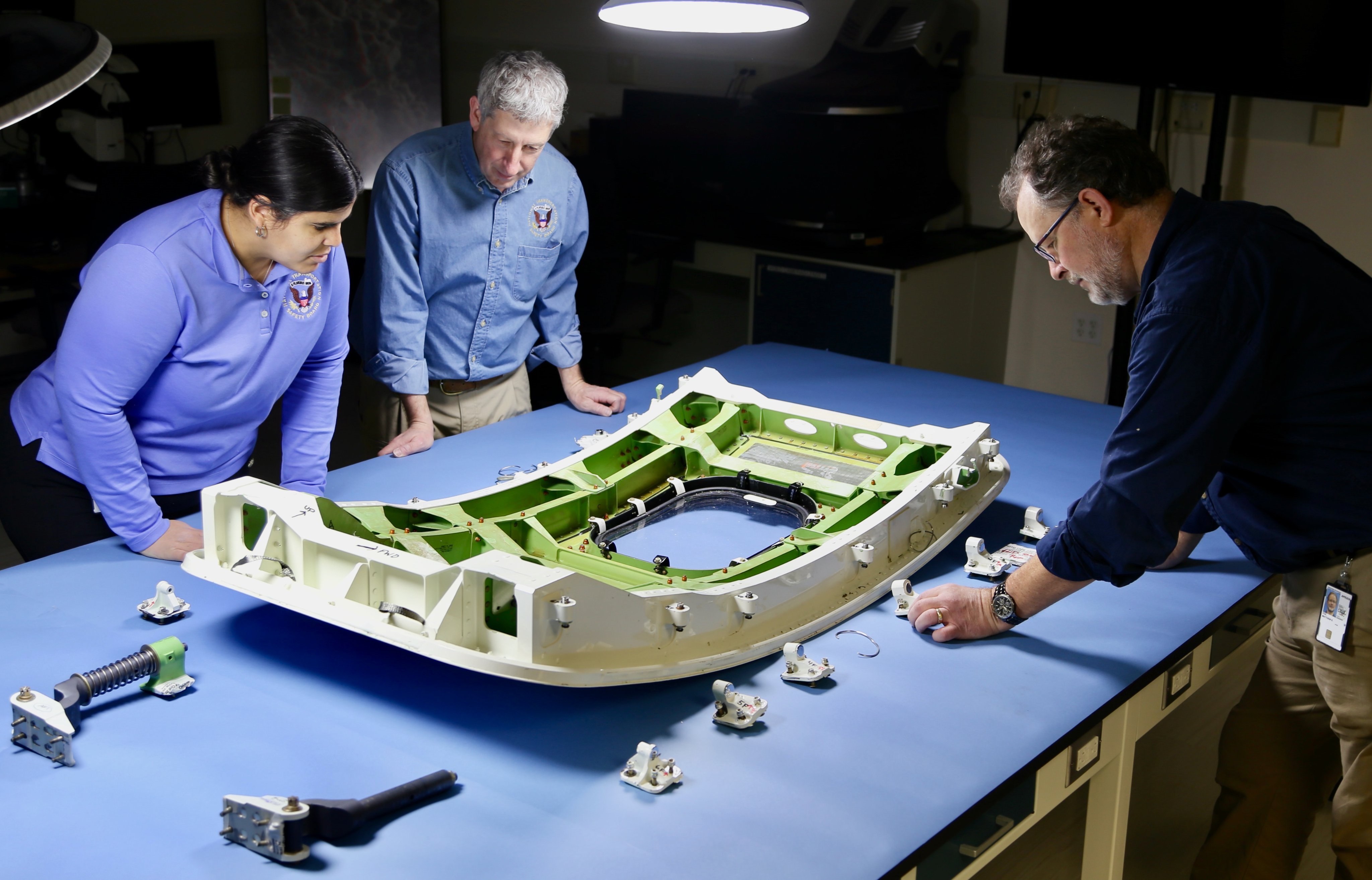


A memo was published on Wednesday by the Senate Permanent Subcommittee on Investigations that revealed new details about Boeing safety failings relating to the Alaska Airlines door plug incident in January.
The committee staff memo, released ahead of Federal Aviation Administration Administrator Michael Whitaker's planned testimony before the subcommittee, briefed Boeing's failure to ensure adequate standards in multiple areas.
In January this year, a fuselage door plug blew off mid-air from a Boeing B737 Max aircraft operated by Alaska Airlines shortly after takeoff from Portland, leaving a large hole in the side of the fuselage. The plane safely made an emergency landing and no one was seriously injured.
Although no serious injuries resulted, the incident drew widespread criticism and initiated multiple investigations, and one such investigation revealed the plane had left a Boeing Assembly Line without the four bolts needed to hold the door plug to the fuselage structure.
The National Transportation Safety Board (NTSB) also sanctioned Boeing for disclosing nonpublic details on an investigation into a 737 Max 9 door plug that blew off during an Alaska Airlines flight in January.
In the latest by the Permanent Subcommittee on Investigations on Boeing personnel, the memo read, "continue to feel pressure to prioritize speed of production over quality."
The memo noted the results of a May 2024 employee survey conducted by Boeing that found only 47% of workers answered favorably to the statement, "Schedule pressures do not cause my team to lower our standards."
Training also remains a problem, the memo said.
"Boeing is failing to ensure many of their employees have the appropriate education, training, skills or experience to effectively perform their assigned tasks," it read.
The subcommittee said Boeing failed to ensure that nonconforming parts are appropriately documented, stored and dispositioned so that they are not installed on aircraft.
In the memo, FAA's ability to oversee the quality and safety of Boeing aircraft has been questioned. Quality inspection procedures, and FAA review of those procedures, also raised questions as to the qualifications and independence of inspectors:
"Boeing personnel are allowed to inspect the quality of their own work," it read.
"These troubling and recurring safety deficiencies raise questions about the FAA's ability to oversee the quality and safety of Boeing aircraft through effective and lasting enforcement," the memo said.
The report documented instances of safety lapses and shortcuts routinely taken by Boeing employees. One of the more worrisome examples, according to the audit, was a Boeing mechanic who used an improvised measuring device to check gaps between components.
"This tool is mechanic made, unauthorized, uncalibrated, unmarked, not inventoried or stored," the report said.
"The mechanic has admitted to using this tool for at least three years. When asked how other door mechanics take this measurement, he stated they all do the same."
Boeing has been charged with conspiracy to defraud the United States and has agreed not to contest the charges and admits that it engaged in criminal conduct intended to deceive and mislead the Federal Aviation Administration (FAA) during the 737 MAX certification process.
In a statement, Boeing said the company has,
"taken important steps to foster a safety culture that empowers and encourages all employees to share their voice, but it will require continuous focus."
"Under the FAA's oversight, we are continuing to implement our comprehensive plan to strengthen Boeing's safety management, quality assurance and safety culture."
The FAA conducted an audit of Boeing in March, soon after the Alaska Airlines incident. The administration mandated a comprehensive action plan from Boeing to address its production issues, giving the company 90 days to comply. Boeing initiated a safety roadmap in May.
Whitaker previously testified in June that the FAA took a "too-hands-off" approach to regulating the aviation giant. The new report doesn't spare the FAA, highlighting its own role in Boeing's failures.
Whitaker earlier said that addressing Boeing's safety culture is a long term fix, "is not a six-month program. It's a three-year, five-year program."
On a training program and a safety management system, Boeing
"have put together a safety training program to roll out" as new talks continue. "That's ready to roll out, but I think it's going to take years of delivering that safety message to the employees actually seeing that safety is more important than production before that wealth of change," Whitaker said.
Wednesday's memo and Whitaker's testimony are part of a wider inquiry that began on March 19, investigating Boeing's safety and culture practices following whistleblower allegations.
You may like to read.....
